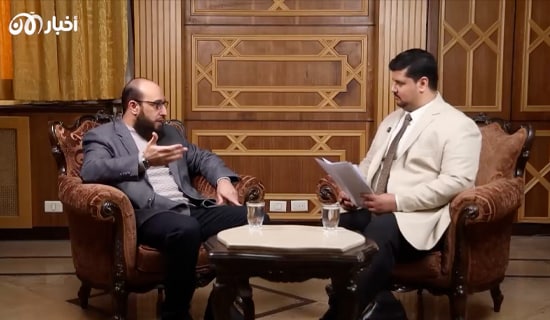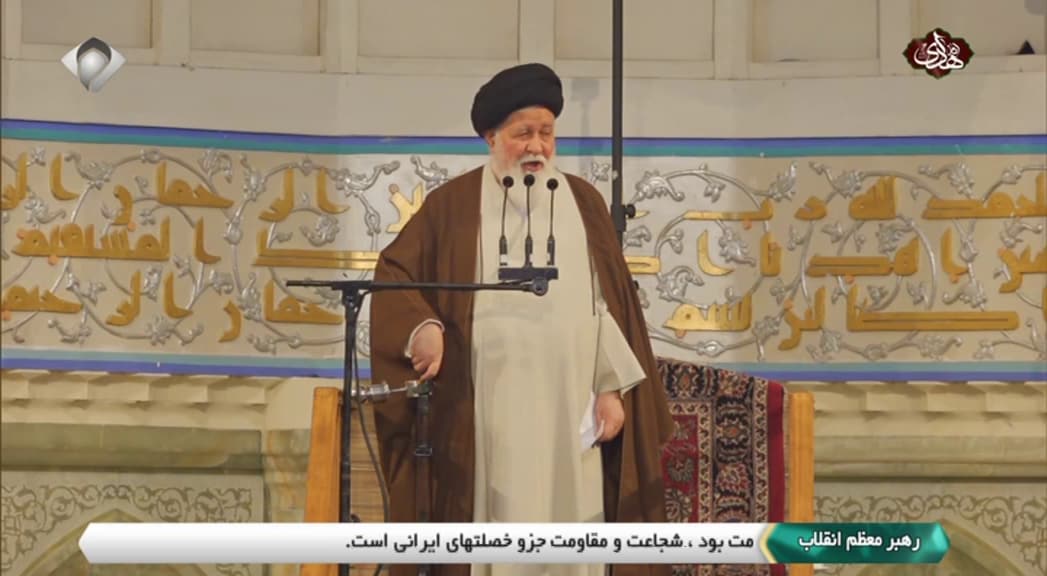
May 19, 2004 Dream2 TV (Egypt)
The privately owned Egyptian channel, Dream2, hosted a discussion about education in Egypt. The host, Dr. Muna Makram 'Ubeid was joined by the Director of the Center for Children's Culture in Egypt, Dr. Fatma M'adoul and by Dr. Amani Qandil, Manager of the Arab Network for Family Organizations. Following is a verbatim translation of excerpts from the discussion, aired on May 19, 2004:
Dr. Ma'doul: I would like to say that for Egyptian society, English colonialism was cruel and barbaric; it was not a good thing. But nonetheless, Egyptian society adopted the ways of civilization from it. Since then, we have regressed. We have regressed to the days when Napoleon arrived and the religious groups came out to greet him calling, "Oh noble of the nobles, you have come to save us." We welcome with open arms the barbaric aspects of this colonialism but at the same time we reject the good values it has.
Dr. 'Ubeid: This is the problem.
Dr. Ma'doul: There is a general atmosphere in Egypt and the Arab world that rejects the other in a horrendous way. When I turn on the television, today, on all channels and on all programs without exception they report, "Palestinian leaders died a martyr's death," "Ten Iraqis died a martyr's death"? Ultimately there must be peace. There is no other way. The reality is that we must reach some kind of? we are peace-loving people. We did not attack anyone. We have been attacked. But we must teach our children from infancy that dialogue is important, transparency is important, rationalism is important?
Dr. 'Ubeid: The acceptance of the others is the most important thing, beginning with his colleague?
Dr. Ma'doul: ?and ending with accepting the other's religion, sex, and color.
Dr. 'Ubeid: These things are never taught. Even though they are of great importance and then we speak of pluralism. What pluralism are we speaking of?
Dr. Ma'doul: In the past Egypt was very open towards the other. I myself saw that Alexandria had Greeks and Armenians. Colonialism is always the same. Throughout history the West had this duality, it was always cruel to the other while flying the flag of liberty. But I would like to say something else. Even though we criticize the West and say it is barbaric, it has the ability to renew and develop itself.
Dr. 'Ubeid: Because it is the one who creates the technology while we only consume the technology.
Dr. Ma'doul: Exactly, for example, the man who defended 'Urabi was an English lawyer. The French stood beside the rebels in Algeria. Those who revealed the crimes of Abu Ghureib were Americans who could confront (the authorities) and speak out. To this day we cannot confront ourselves. The Americans did not say that those who took the photographs shamed their country and that they are (foreign) agents. Old colonialism renews itself and that is it. Colonialism from the 18th century and earlier is the same colonialism that is renewing itself. The English conquered Egypt and entered it, but at the same time they knew how to renew themselves, to develop their methods and admit to mistakes. True, we have no self-criticism. What internal affairs minister in the history of the Arab world got up and said, "I made a mistake regarding the treatment of others." There is no such thing. Why do first graders need private lessons? Because sometimes the mother and father do not know how to read. They cannot tell the child, A B?
Dr. 'Ubeid: An illiterate cannot develop himself. Today the problem is creativity. How can an illiterate man or a man who knows only one language be creative? In today's world, whoever knows only one language is enclosed in one culture.
Dr. Ma'doul: As they tell you about the fast, it is an internal struggle. The internal struggle is extremely difficult, but before we fight outside of our borders, we must fight within our borders against illiteracy, poverty, and ignorance. Without this, we cannot face any external enemy. Only then, will we not be afraid to say this within the home and school. Only then, will we not be afraid of foreign programs and foreign things because then society is improved.
The greatest obstacle in the Egyptian educational system is the teachers. Teachers are not trained according to the modern values, including the culture of peace, development, tolerance, democracy and so on. So how can we instill in children these values, such as human rights?
Dr. Qandil: This is a very important question, and one should discus it with candor and without fear. We face two generations. There is a generation of children and youth who study, but the problem is that those who teach them are not in a better situation. How can this equation be solved? I think this is the main challenge faced by all Arab countries.













